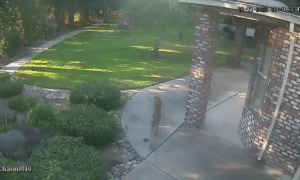“This post contains affiliate links, and I will be compensated if you make a purchase after clicking on my links.”
A Guide to Dog Pregnancy Understanding the Basics
Dog pregnancy usually lasts about 65 days. Pregnancy symptoms are unnoticeable during the first 3 weeks or more. Nonetheless, some observable signs include when the dog suddenly becomes more affectionate. She also may start eating more than usual. Her nipples will enlarge a little, and around 4 to 5 weeks, a clear vaginal discharge can be seen. This is expected to continue until your pregnant dog gives birth.
How to Manage Canine Pregnancy
Dog pregnancy is manageable as it requires little intervention from the owner and the vet. Making special preparations can help to ensure that your pregnant dog is healthy and has a safe, comfy place to give birth. Some of the things owners commonly take into consideration when their dogs are expecting are listed below:
- Feed the dog with a premium adult dog food during the first few weeks of her pregnancy. In the fourth week, add some amount of premium puppy food in her diet. Every week, replace a bit of the premium adult food with premium puppy food until your dog gets to eat all puppy food by the last week of her pregnancy.
- As the pregnancy progresses, let your dog to eat numerous small meals every day instead of merely eating one to two large meals a day. By the end of the period, she will need to eat every 3 to 4 hours.
- So long as your dog is eating a proper, premium diet, you will not need to add any more supplements to her food. Check with your veterinarian to find out what he or she would recommend.
- In order to maintain the dog’s muscle tone and at the same time keep her from gaining excess weight, provide her with regular but not strenuous exercise during the course of her pregnancy.
- At about 2 weeks prior to your dog’s due date, give her a “whelping box” where she will give birth. This will be necessary to let her get used to her birthing box early.
- Consider a natural dietary supplement at the time when your dog begins to lactate. This will help her body to meet the extra demands of producing milk.
- Healthy dogs rarely require assistance when delivering puppies. Just ask your vet what, if anything, you should do to aid her when that time comes. Owners should watch out for whelping signs that include panting, restlessness, licking the vulva, shivering, hiding, and in some cases, vomiting.
Most importantly, take extra special care of your new mother. Like with human mothers, new babies can be a little overwhelming at times, even exhausting. You know your dog best, just watch to make sure she’s bright-eyed and content.



















